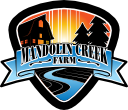Components
Program Components
After being accepted to the program, you must develop a detailed incubation program, covering every aspect of resource consumption. Your program expands upon the incubation plan provided as part of the application process.
Business Development
At its core, your program guides you through the process of starting, launching, and growing your business.
Each step of the process will be explained clearly and thoroughly, documented for clarity and reference, incorporated and implemented into your schedule and plans, executed when needed with the help you need, refined if undesirable results occur, and recorded to track performance.
To use a metaphor, you will be busy driving a moving van to your future property. We will be in the passenger seat as your tour guide, note taker, navigator, route planner, tire changer, or simply cheerful and supportive companion on the journey. We help you focus on driving and make sure you reach your destination.
Skill Enhancement
There seem to be countless details to manage when starting any business, so you need to be comfortable with the skills required to succeed.
Your program should include education, guidance, and support in areas that you have identified for developing or enhancing your skills. The following sections provide some examples of skills that might be used by a rural land owner or operator.
Business Skills
All program participants must develop and demonstrate competence in all types of office work:
- Regulatory compliance: food safety, zoning and permits, water rights, etc.
- Policy and process management: organizing, dividing, and delegating of time and resources
- Marketing and sales: roadside stand, farmers markets, social media, online sales, etc.
- Bookkeeping and accounting: record keeping, starting and maintaining personal/corporate books, tax prep
- Insurance: personal, business, and product liability, umbrellas, etc.
- Legal: handling contracts, incorporation, etc.
Rural Skills
Participants must demonstrate proficiency in vocational areas that are relevant for their business:
- Animals, Vegetables, Mushrooms, Bees, ....: mastery of what you are producing
- Forestry: thinning, harvesting, and milling lumber
- Tools, Equipment, and Machines: selection, operation, and maintenance
- Woodworking: project design and construction
- Construction: design, construction, and maintenance of buildings/housing, plumbing, electrical, etc.
- Landscaping: road construction and maintenance, planting, watering systems
- Automation: designing, building, and using off-the-shelf and custom software and hardware
Many other skill areas are available for enumeration or elaboration upon request. What do you need to learn?
Facilities
Your program may reserve space in buildings or other structures on the land.
Land owners may permit or prohibit construction of new structures. If new structures will be required, your program must specify where and how they will be constructed, who will bear the costs, and so on.
Equipment
Land owners may allow your program to reserve and utilize the tools, equipment, and machines that are present on their land.
Each owner may set their own policies for such use. For example, you may be required to use a qualified operator to use certain equipment or machines, and the owner may determine their own threshold of qualifications. You may be required to receive extensive training to become qualified, or you may be handed the keys and an extensive liability waiver.
Usage depends upon availability and affordability. Important equipment (e.g. tractors) may have limited availability due to high demand,. Your program should include estimated usage, which will be bundled into your base cost. Some owners offer an on-site short-term rentals as a convenient and inexpensive option over other rental options, at a higher rate than scheduled usage.
Utilities
Your program will consume resources supplied by utility providers and infrastructure, from power and water to wear on roads and telecommunications equipment. To avoid the various problems caused by overcapacity, you will receive an allotment of those resources, calculated to meet the predicted the needs of all programs with some margin to spare.
Overages in this area can be very expensive, so your program must budget appropriately and include measures to monitor your usage and prevent waste.
Lodging
Rural professions have appeal because they offer the opportunity to live where you work. Programs may include a house or room to lease along with the land, or they may have have basic hookups for an RV or camper. Alternatively, the property might offer the opportunity to learn how to build a yurt, tee-pee, or wigwam.
Some properties may not offer lodging of any kind, and overnight camping may be prohibited by local zoning laws. In this case, program participants must arrange for other nearby accommodations.
Resource Allocation
Your current levels of experience and progress, the resources necessary to support your plans, and other factors will determine the resources that can be provided by the incubator program for your venture.
Collectively, the program's requirements must be balanced with our other ongoing programs and land-use needs.
